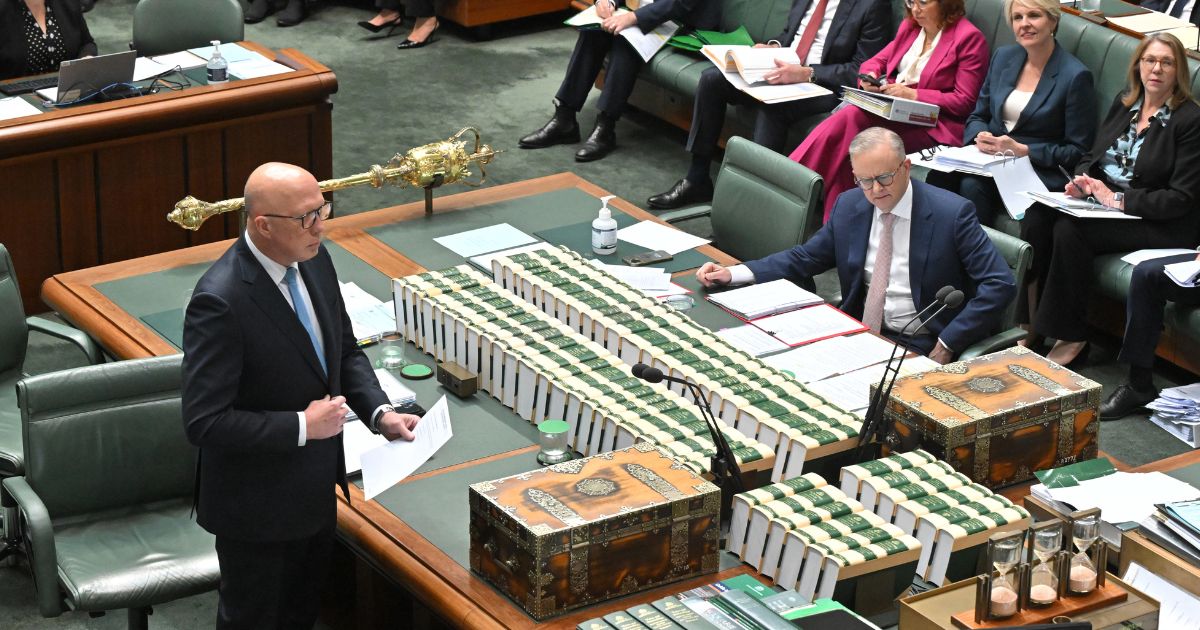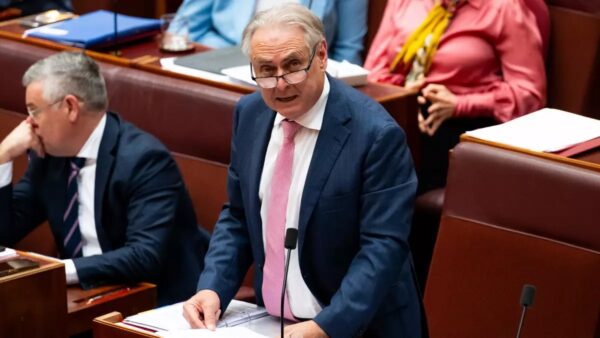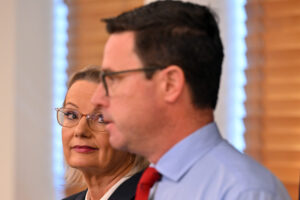
The Albanese government’s attempt to rush through major changes to Australian elections has been delayed in the Senate – at least until February, perhaps forever.
As Australia Institute research identified serious flaws, risks and loopholes in the legislation, delay is welcome – but bittersweet, because electoral reform is needed to increase confidence in politics and democracy.
Good electoral reform would include transparency around political contributions, especially “cash- for-access” payments from vested interests to get exclusive access to politicians; truth-in-political-advertising laws to prevent political players from misleading the public; and upper limits on billionaire and corporate spending on political campaigns.
But the government proposed changes that are flawed in process and substance. Though Special Minister of State Don Farrell has had almost three years to prepare the bill, the 200-plus page behemoth was presented to Parliament with just days for consideration.

Normally, changes to electoral law would go to a parliamentary inquiry, with Australians invited to give their views in submissions and public hearings.
Negotiations between politicians behind closed doors are not good enough when it comes to fundamental changes to Australian democracy.
Substantive flaws include that the proposed new public funding would deliver tens of millions of taxpayer dollars to the major parties but nothing for new entrants; and that caps on spending “per-electorate” have loopholes that parties can exploit, but their independent rivals cannot.
Is the unfairness by mistake or design? Senator Farrell has emphasised that he sees the “Westminster system” as a contest between major parties.
Journalist Jason Koutsoukis reports that when warned his changes would “entrench the two-party system and lock out challengers”, Senator Farrell replied: “That’s the f—ing point“.
Another alleged point of the bill is to curtail Clive Palmer, the mining billionaire who has spent money at recent elections out of all proportion with his support among voters.
However, a loophole designed for major parties – “nominated entities” that can make contributions beyond the donation cap – could be exploited by Palmer to continue funding big campaigns.
That is not the only loophole. A day after the bill was tabled, Liberal-National parliamentarians received a briefing on how it would work. According to journalist Paul Karp, one MP “quipped that the Liberal National Party of Queensland should split so that there would be more entities for donors to give to”.
It took one short briefing for politicians to spot a loophole, but it would take many days of careful study by many eyes to identify every loophole.
There are already-scrutinised electoral reforms that could be implemented when Parliament sits in February, while more risky and novel changes should go to a parliamentary inquiry.
Truth-in-political-advertising laws would be a good place to start. They are in the Labor Party platform, are supported by independents and Greens, and potentially the Coalition – with Opposition Leader Peter Dutton describing them as “probably welcome”.
Senator Farrell’s home state of South Australia has had these laws for almost 40 years, where they are proven to work.
These laws could have passed last week, if the government had not chased the false promise of a deal with the Coalition.
The government has proposed welcome improvements to transparency, including real-time disclosure of political donations and lowering the threshold before a donation must be disclosed from about $17,000 to just $1000.
These measures to shine a light on dark money are part of the loophole-riddled Electoral Reform Bill.
The Australian Democracy Network, Transparency International Australia, Centre for Public Integrity and Australia Institute united to call for these non-controversial clauses to be split off, so they can pass on their own merits.
Under careful scrutiny, and following proper parliamentary processes, other parts of the government’s proposed changes may be worth legislating.
The bill proposes a $600,000 limit on how much any one person can donate to political causes each year. If the nominated entity loophole were removed, this could be an effective check on billionaire influence on elections.
It is reminiscent of the Australia Institute’s proposed “mega-donor cap”, which our modelling suggests would dramatically limit the influence of very large donors.
If Parliament returns in February, electoral changes will be at the top of the agenda. No doubt negotiations will continue over summer, particularly between the major parties. They have the most to gain from a deal.
But for Australians to have trust in the process, there must be genuine consultation that includes the public: informing Australians, listening to them and taking on their feedback. Democracy belongs to the people, not the politicians they elect.
Australians are distrustful of politicians, and the unseemly haste to pass the government’s proposed changes to electoral laws via a major party deal would have reinforced this distrust.
But if proper parliamentary processes are followed, there is an opportunity to improve trust in Australian politics and shine a light on the money funding political players.
If the Albanese government took this opportunity, it would have a positive story to tell for the 2025 election.
Between the Lines Newsletter
The biggest stories and the best analysis from the team at the Australia Institute, delivered to your inbox every fortnight.
You might also like
The election exposed weaknesses in Australian democracy – but the next parliament can fix them
Australia has some very strong democratic institutions – like an independent electoral commission, Saturday voting, full preferential voting and compulsory voting. These ensure that elections are free from corruption; that electorate boundaries are not based on partisan bias; and that most Australians turn out to vote. They are evidence of Australia’s proud history as an
Gender parity closer after federal election but “sufficiently assertive” Liberal women are still outnumbered two to one
Now that the dust has settled on the 2025 federal election, what does it mean for the representation of women in Australian parliaments? In short, there has been a significant improvement at the national level. When we last wrote on this topic, the Australian Senate was majority female but only 40% of House of Representatives
The 2025 federal election is the first where a major party received fewer votes than independents and minor parties.
While the May election result was remarkable for the low vote share going to the major parties, it was just the most recent of a very long trend.
